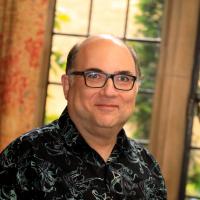How Fighting Ageism Can Help Us Live Longer – and Make the World Better
Would you like to add seven and a half years to your life? At no financial cost and with no weird or crazy procedures, no procedures at all in fact?! So what is this miracle treatment, backed by science, and so easy you can start doing it now… it’s simply to think good thoughts about getting old. You can hear more about it from Atlantic Fellow for Equity in Brain Health at GBHI, Josh Kornbluth, through his latest video from the Citizen Brain series, Age without Ageism, here or below.
The video looks at Yale Professor Becca Levy’s research which has found that older individuals with more positive self-perceptions of aging lived 7.5 years longer than those with less positive self-perceptions of aging. This advantage remained after age, gender, socioeconomic status, loneliness, and functional health were accounted for. You can read Professor Levy’s paper on the subject here. Professor Levy also published research in 2018 which showed that positive attitudes about aging reduce the risk of dementia in older adults. You can read more about this incredible research here.
One of the key issues raised in the video is ageism, which as Josh explains, is the only universal prejudice in that if we live long enough, we all have the chance to suffer from it. Professor Rose Anne Kenny, Principal Investigator and founder of The Irish Longitudinal study on Ageing (TILDA) and Director of the newly established Mercer's Institute for Successful Ageing addresses this subject and the importance of ensuring our older populations have a purpose and that their value in society is recognized. Those countries where this happens most comprehensively are also the countries where people live longer.
Delving into the benefits of aging, Josh also spoke with Kate Rankin, PhD, Professor of Neuropsychology at the UCSF Memory and Aging Center about the wisdom that comes with aging and how it actually operates in the brain.
Did you know that only humans and a few types of whales tend to live past their reproductive years? The ‘Grandparent Effect’ may be one of the possible reasons why this occurs, a fascinating concept and benefit of aging, explored in the video by Associate Professor Pascal Gagneux, PhD a Molecular Naturalist at UC San Diego.
Josh, a monologuist, Atlantic Fellow for Equity in Brain Health at GBHI and Hellman Visiting Artist at UCSF's Memory and Aging Center has a particular skill for producing engaging, charming, and timely videos through his series called Citizen Brain. Josh’s aim with the series is to tackle key issues around brain health and aging such as empathy, loneliness, racism, and ‘othering,’ and how to balance zeal and doubt.
"In the course of making these videos," Josh says, "I've come to believe that the struggle for achieving equity in brain health is a key part of the movement for equity in all areas of society."
You can watch the first episode of the Citizen Brain series, The Empathy Circuit, here.
Authors
GBHI Members Mentioned

Josh Kornbluth
Performer, Writer, Film- & Video-Maker

Rose Anne Kenny, MD, FRCP, FRCPI
Professor of Medical Gerontology

